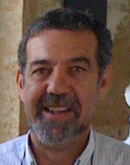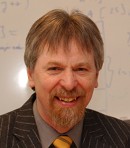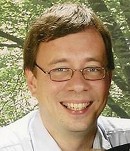

 |
João GamaJoão Gama is Associate professor at the University of Porto and researcher at LIAAD-Inesc Tec. He served as PI in several FCT projects in learning adaptive systems. He published more than 110 papers in major International conferences and journals, served as PC chair at ECML05, DS09, ADMA09, and Conference Chair at IDA11.He co-organized a series of workshops on learning from data streams in conjunction with ECML-PKDD, KDD, SAC and ICML. He is member of the editorial board of MLJ, DAMI, NGC, and PAI and he is author of a recent book in Knowledge Discovery from Data Streams. |
 |
Sangkyun LeeSangkyun Lee received his B.S. (Hons) degree in Computer Science and Engineering in 2003 and the M.S. degree in Electrical Engineering and Computer Science in 2005, from the Seoul National University in South Korea. He moved to the USA and continued his graduate studies in Computer Science with specialization in optimization at the University of Wisconsin-Madison, where he completed the M.S. and Ph.D. degrees in 2008 and 2011, resp. At August 2011, Dr. Lee joined the Collaborative Research Center 876 in TU-Dortmund as a postdoc researcher. |
 |
Jan MadsenJan Madsen is Professor in computer-based systems at DTU Informatics at the Technical University of Denmark. He is Deputy Head of the Department of Informatics and Head of the Section on Embedded Systems Engineering. He is the leader of the Hardware Platforms and Multiprocessor System-on-Chip Cluster within the EU/IST Network-of-Excellence ArtistDesign and member of the Strategic Management Board of ArtistDesign. He is senior member of IEEE and is currently serving as Vice Chair of IEEE Denmark Section. His research interests are related to design of embedded computer systems. In particular system-level modeling and analysis of multiprocessor systems, including RTOS modeling and hardware/software codesign. He is generally interested in design methodologies (including CAD tools) and implementations of embedded systems, covering areas of adaptable systems, wireless sensor networks and biochips. He has published more than 110 publications in international journals and conferences as well as co-authored 11 book chapters. |
 |
Peter MarwedelDr. Peter Marwedel studied physics at the University of Kiel, Germany. He received his PhD in that subject in 1974. As a post-doc, he published some of the first papers on high-level synthesis and retargetable compilation in the context of the MIMOLA hardware description language. In 1987, his habilitation thesis in computer science (a thesis required for becoming a professor) was accepted. Since 1989, he is holding a chair for computer engineering and embedded systems at the computer science department of TU Dortmund. He is also chairing ICD, a local spin-off of TU Dortmund. His research interests include design automation for embedded systems, in particular the generation of efficient embedded software. Focus is on energy efficiency and timing predictability. Since 2001, Dr. Marwedel published papers on energy-efficient software and compiler-supported use of scratchpad memories. He is the author of one of the few textbooks on embedded systems. Since 2011, he is the vice-chair of the collaborative research center SFB 876, aiming at resource-efficient analysis of large data sets. Dr. Marwedel is an IEEE Fellow. |
 |
Nico PiatkowskiNico Piatkowski was born in Dortmund, Germany. He has been working as tutor and student assistant at the Computer Science Department, Technische Universität Dortmund, from 2005 to 2010. He achieved his Diploma degree from the Computer Science Department, Technische Universität Dortmund in 2011. Since then, he is a research assistant and Ph. D. student at the Artificial Intelligence Unit. His current research is focused on ressource aware algorithms for Graphical Models, nonlinear optimization and parallel algorithms, especially for Graphics Processing Units (GPUs). He has written the first full parallel, GPU accelerated Conditional Random Field implementation. |
 |
Jörg Rahnenführer and Michel LangJörg Rahnenführer is professor for 'Statistical methods in genetics and chemometrics' at the Department of Statistics of TU Dortmund University. His research interests are biostatistics and the development and application of statistical methods in bioinformatics. He is an expert in the analysis of high-dimensional genetic data and survival data. Michel Lang is a PhD student in his research group, funded by the Collaborative Research Center SFB 876. He will participate in the research school as a teacher in the practical sessions on R and is one of the authors of the R packages BatchExperiments and BatchJobs. |
 |
Wolfgang RhodeDr. Dr. Wolfgang Rhode is professor for ‘Astroparticle Physics’ at the TU Dortmund University. Presently his group is contributing to the IceCube neutrino telescope and the MAGIC/FACT and CTA gamma ray telescopes and as well to phenomenological calculations of fluxes from extragalactic sources. High performance computing, statistics and data mining in Astroparticle Physics are the technically connecting link between the experiments and important research topics. |
 |
Tim RuheTim Ruhe is Ph.D. student at the TU Dortmund University. He received is diploma (masters level) in physics in 2008 in Münster, Germany, with a focus on Nuclear and Particle as well as Neutrino Physics. Currently, he is member of the Collaborative Research Center SFB 876 and uses his experience in data analysis for detecting events in the IceCube neutrino detector. He already held several practical lectures on applying machine learning algorithms in RapidMiner for event classification. |
 |
Michèle SébagMichèle Sébag is head of Équipe A-O at the National Center for Scientific Research. With a background in maths (Ecole Normale Superieure, agregation of Mathematics), she went to industry (Thomson-CSF, now Thales) where she started to learn about computer science, project management, and Artificial Intelligence. She got really interested in AI, became Consulting Engineer, and realized that Machine Learning was something to be. She was offered the opportunity to start research on Machine Learning for applications in Numerical Engineering, specifically Mechanics of Solids, at Laboratoire de Mécanique des Solides at Ecole Polytechnique In 2001, she went to LRI, Université Paris-Sud as head of the Inference and Apprentissage research group. In 2003, she founded together with Marc Schoenauer the research group TAO, Apprentissage and Optimization at INRIA. |
 |
Olaf SpinczykOlaf Spinczyk is professor of Computer Science at Technische Universität Dortmund, Germany, where he is leading the Embedded System Software Group. Before moving to Dortmund, Olaf worked as a post doc at the University of Erlangen-Nuremberg, Germany. He received his PhD from the University of Magdeburg, Germany, in 2002 for his research on "Operating System Construction by Aspect-Orientation". Olaf published more than 100 conference, workshop, and journal papers, which have contributed to software and language engineering as well as system software research, especially targeting resource-constrained embedded systems. In the context of the collaborative research center SFB 876 he is leading two projects: "UbiDM" aims at opening the internal state of embedded system software for large scale distributed data mining and learning-based optimizations. In the "Platform" project he is working on system-software resource models. |